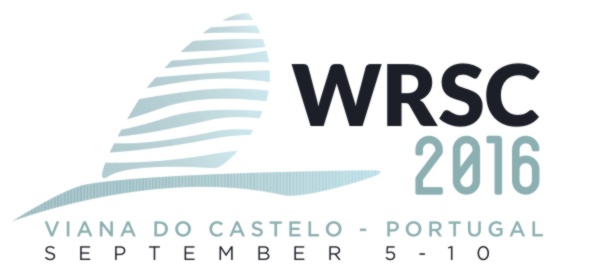7 April 2016

The 2016 edition of the World Robotic Sailing Championship and International Robotic Sailing Conference will be held in Viana do Castelo,
north of Portugal, between 5 and 10 of September 2016. For more information
please visit the event web site at www.wrsc2016.com.
22 October 2015
Josť Francisco Valente, student of the graduation in Electrical and Computer Engineering at the University of Porto and member of the FASt team, was awarded with the best poster and 2nd best oral presentation in the AFCEA Student Conference, in Berlin, 19th October 2015. His work was developed in the scope of the activities of the AFCEA Porto Student Club, sponsored by AFCEA Portugal and presents the potential of robotic sailing boats for
the surveillance of the marine borders. More information in
https://www.facebook.com/afceaportugaloficial
10 September 2015
The FASt team has participated in the 8th International
Robotic Sailing Conference in Mariehamn, Finland, hosted by the Aland University of Applied Sciences, from 31st
August to 4th September. Two papers were presented, reporting the work developed in the scope of the FASt project at FEUP:
"Integration of Wind Propulsion in an Electric ASV" and "AIS Enabled Collision Avoidance Strategies for Autonomous Sailboats".
This later paper was selected for a best paper award, together with the work presented by Holger Klinck, from Cornell University,
"Mobile Autonomous Platforms for Passive-Acoustic Monitoring of High-frequency Cetaceans".
17 September 2014
The 7th International Robotic Sailing Conference
was hosted by the National University of Ireland, Galway, in the Aula Maxima room, on the 8th September.
The conference was organised with 8 regular presentations of technical papers,
9 short presentations of the teams registered for WRSC and a final panel session where various topics related to
robotic sailing were discussed. In parallel with the conference, the robotic sailing boats participating in WRSC
were exhibited to the public, with an interesting number of curious visitors.
The World Robotic Sailing Championship
started on the 9th September 2014, in Galway, Ireland, under unexpected very good weather in the Galway bay.
The lack of wind on this first day did not allow the
robotic sailboats to complete the first scheduled race, to evaluate the upwind/downwind performance.
In the next days the wind allowed the realisation of the rest of races. Due to a problem detected in its main power supply,
FASt was not able to get in the start line for the station keeping contest, during Wednesday morning. In the afternoon FASt
successfully completed the fleet race, unfortunately with only SeaQuest (United States Naval Academy) competing in the
same class. Although SeaQuest has shown to be significantly faster than FASt, her course control system failed to maintain an
appropriate route and she was not able to complete the course, giving the victory to FASt.
The endurance race was done on Thursday. The light and unstable winds in the morning did not allow to start the race before noon, and
due to timing constraints of the organisation the race had to be constrained to only a 3 hours period. Once again, only FASt
and SeaQuest did the race and agreed to start at the same time, as the official start signal had already been done. After some minutes
in the first upwind leg, both teams decided to interrupt and restart to remove the seaweed accumulated in the keels and rudders.
Fortunately, minutes later most of the weed has been pushed by the wind out of the race area. The wind increased during the beginning
of the afternoon. This was a disadvantage to SeaQuest that decided to rig the largest sails, making her maneuver more difficult.
At the end, FASt won the endurance race completing 10 laps, while SeaQuest only did 8.
The collision avoidance contest was done Friday morning. The contest has been set in an unusual way, with a small static buoy
set as the obstacle to avoid, placed somewhere in the middle of the route between the starting line and a reaching mark
located 260 m away. The objective was to avoid that physical obstacle, either by knowing its location (as lat/lon coordinates given by jury)
or by detecting it with any onboard means (sonar, image, etc). However, with the GPS error and the drift of the buoy it was
virtually impossible to all competitors to ensure a direct path to the obstacle, which would be necessary to evaluate the performance of the
collision avoidance strategies. Because of this, the results of this last contest were actually dictated by luck and unluckily
FASt did not manage to avoid the buoy in her way back to the start line. This was the only race where our small Laser ASV participated,
obtaining the maximum classification because she didn't find that obstacle buoy.
At the final, the overall winner in the "normal sailboat" class was SeaQuest and FASt was awarded second place. Unfortunately, the third sailboat
in this category (Kitty, a SailBot class from the University of Aberystwyth, Wales) was not able not enter any of the races. The Laser ASV
was also second in the "micro-sailboat" class, while the 2880 team (UK) won this category.
More information about the event can be found in the WRSC2014
facebook page.
|
